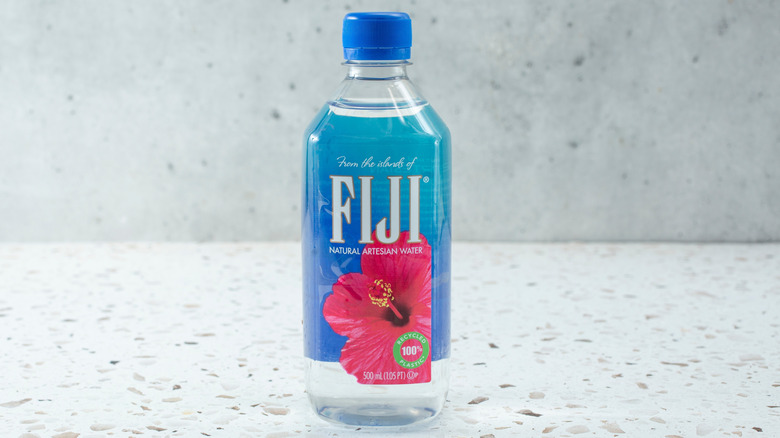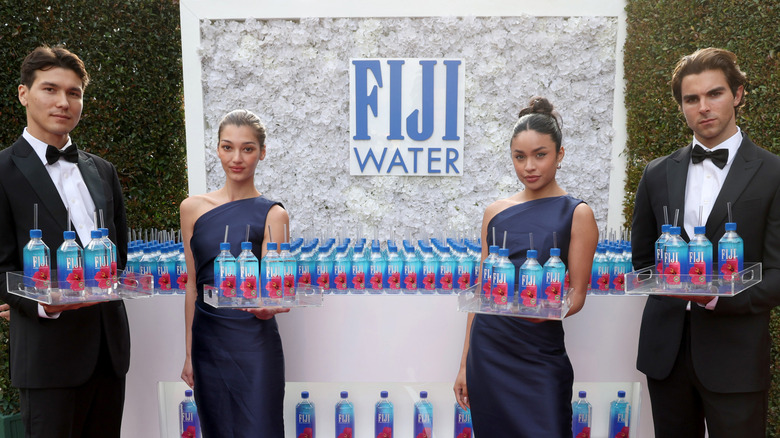Is Fiji Water Worth The Money Or Overpriced? It's Complicated.
When you're out and about and need to hydrate, you might be tempted to grab a bottle of bougie Fiji Water from the nearest store or vending machine. Is the water loved by Hollywood's elites worth the price? It is certainly expensive — at Target, 16.9-ounce bottles of Fiji Water retail for around $8 for a pack of six, whereas you can get 24 bottles of Dasani water for about $5.30.
But there's not just a high monetary cost to Fiji Water. The company's environmental impact, domineering presence in the country of Fiji, and potential links to microplastics may cause you to think twice about your hydration choices. While some may argue that premium bottled water like Fiji's is worth the cost because of the flavor, not everyone agrees.
Martin Riese, TikTok's leading "water sommelier," dislikes Fiji Water, and other taste testers agree. In 2006, Fiji launched an ad campaign with the tagline, "The label says Fiji because it's not bottled in Cleveland" (via Washington Post). This marketing move backfired when Cleveland city officials compared Fiji Water and city tap water and found that Fiji Water contained arsenic, while Cleveland's tap water did not.
Even some one-time consumers of Fiji's bottled water are no longer fans of the taste. In a 2024 post in r/HydroHomies on Reddit, dozens of users agreed that the water doesn't taste like it used to. Of course, taste is subjective, and there must be a reason Fiji Water is touted by so many public figures. But no matter your opinion on the flavor, I think we can all agree that the water company's ethics are a bit murky.
Fiji Water controversies
Fiji Water is sourced from an aquifer in the island country of its namesake, but inhabitants don't always have access to clean drinking water. The company has maintained a tax-free status for many years, despite positioning itself as a savior of Fiji's economy. And then there's the company's silence on the numerous and well-documented human rights abuses within Fiji.
Consumers are also critical of the company's unkept promises of being "carbon-negative," which is a lofty goal for a business that ships its products thousands of miles overseas and imports plastic for bottles from China. In fact, in 2011, Fiji Water was sued for false advertising because of the "carbon-negative" claims on its website. The company is not projected to be carbon negative until 2038.
Fiji Water faced more legal action over false advertising again in January 2025 when the Plastic Pollution Coalition filed a complaint alleging that the company used misleading marketing by calling the product "natural artesian water" and "protected from external elements." The complaint argued that these claims weren't accurate because of alleged BPA and microplastic contamination. In March 2025, a federal court in Illinois rejected the case, citing insufficient evidence. Studies examining samples of other brands have detected microplastics in bottled water; Fiji Water was not included in that research, though the company was part of a bottled water recall that affected millions.

